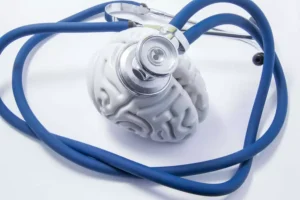
The rush of euphoria and emotional openness that MDMA creates is what makes it so attractive to users. For many, the first experience with MDMA can feel almost magical—everything seems better, brighter, and more intense. Music sounds incredible, relationships feel deeper, and all worries seem to disappear for a few hours.
- Knowing some of the signs and symptoms of ecstasy addiction is an important step to recognizing if someone suffers from the substance use disorder.
- Many people take it to have feelings of euphoria and increase their confidence.
- If eligible, we will create a treatment plan tailored to your specific needs.
- Only around 6.8% of people report using this drug within their lifetime, for example.
Is Ecstasy (MDMA) Addictive?
The facility offers several addiction treatment programs, from outpatient therapy to residential rehab. It provides a full continuum of care through every level of treatment. Removing Molly and other drugs from your life is not easy to do alone.

Is MDMA addictive even if I only use it at parties? #
The body may become dangerously hot, and the person could become confused or disoriented. MDMA can also affect your ability to think clearly and remember things. Studies have shown that regular MDMA use can lead to memory problems, making it harder to recall events, information, or even basic details from your day-to-day life. These cognitive problems happen because MDMA damages certain parts of the brain that control memory and learning. Over time, this can make it harder to focus, solve problems, or keep up with responsibilities. It floods your brain with chemicals that boost your mood and energy, but it also puts a lot of stress on your body.
Ecstasy Addiction Treatment

MDMA causes the release of large amounts of serotonin from the brain’s nerve cells, which leads to a flood of serotonin in the synapses between nerve cells. This can cause feelings of euphoria, increased sociability, and heightened sensations, as well as changes in mood and perception. However, it also causes the release of stress hormones, such as cortisol, which can have negative How Long Does MDMA Stay in Your System effects on the body. Treatment with Enterhealth often begins with supervised medical detox (also known as withdrawal stabilization) to remove the substance from the body.
- Animal studies show that MDMA causes drug-seeking behavior, but animals seek it less often than they seek other addictive drugs.
- Permits for research uses on humans must be approved by a recognized ethics committee on human research.
- In this respect, it resembles the structure of the hallucinogenic material mescaline.
- Hailey Shafir is a Licensed Clinical Mental Health Counselor, Licensed Clinical Addiction Specialist, and Certified Clinical Supervisor with extensive experience in counseling people with mental health and addictive disorders.
- Without a significant withdrawal syndrome that is formally recognized, it is questionable whether or not an individual can develop physical dependence on ecstasy.
An ecstasy tablet, molly, and MDMA all produce euphoric feelings of happiness, well-being, and friendliness toward others. They also heighten the senses, increasing the user’s reception to sight, sound, touch, and smell. This often makes them the drug of choice at clubs and raves, as the user has a heightened sensation of the world around them and feels a connection to other clubgoers. MDMA, Ecstasy, and Molly are all slang terms used to refer to the drug 3,4-methylenedioxymethamphetamine, commonly known as MDMA. Our board-certified psychiatrists, physicians and other experts combine their expertise to create personalized treatment plan using evidence-based behavioral and psychological therapies.
Lifestyle Quizzes

However, the drug can be detected in urine for up to three days after use, and in blood for up to 24 hours. The exact length of time that it stays in the system will vary depending on a range of factors, such as the dose, frequency of use, and individual metabolism. However, the effects of MDMA can vary widely depending on the individual and the environment, and can be influenced by factors such as dose, purity, and drug interactions. In 1985, the United States Drug Enforcement Administration (DEA) classified ecstasy as a Schedule I drug alongside heroin and LSD. Schedule I substances have a high potential for abuse and no accepted medical use.

They might have an unnaturally long level of energy, still going strong after everyone else has grown physically and mentally tired of the activity at hand. Because of the increase in sensory response, individuals on MDMA may seek out activities that increase sensations, including physical touch and intimacy. This guide explains the effects, trends, and dangers of ecstasy use, as well as an unbiased analysis of the medicinal and behavioral treatment methods for ecstasy addiction based on current research and publicly available statistics. In some cases, usage statistics are derived from general psychostimulant use, including MDMA and methamphetamines.